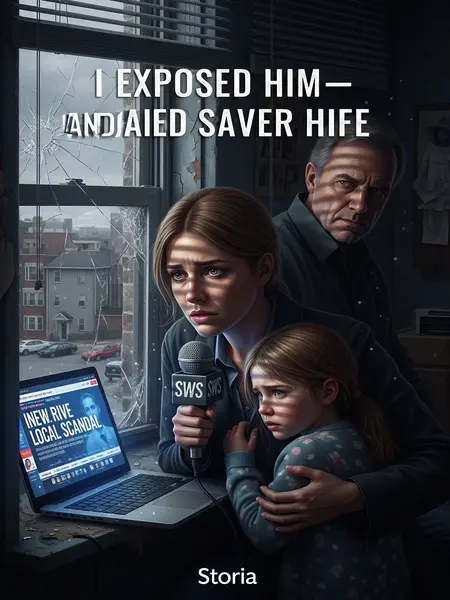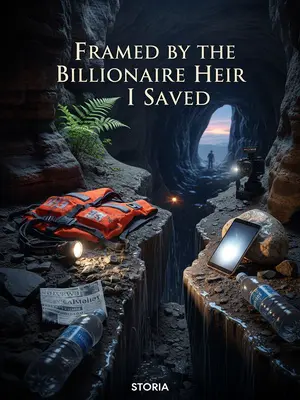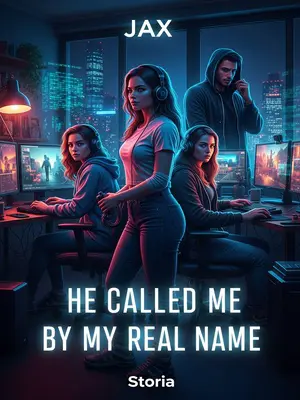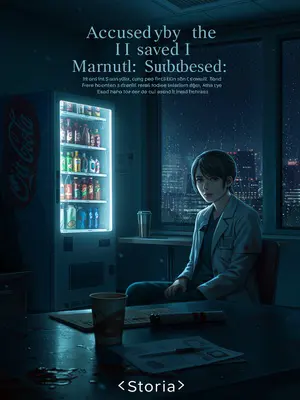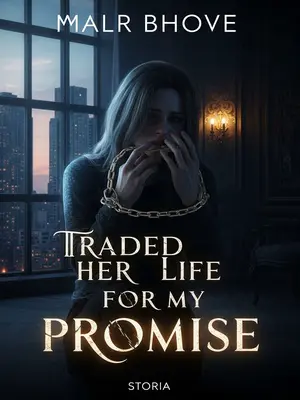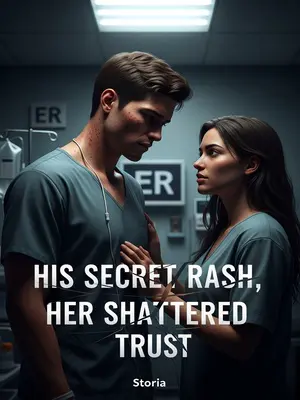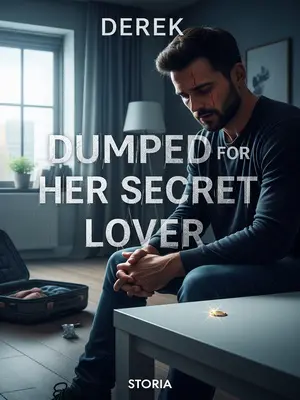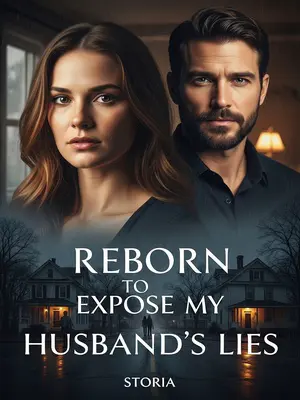Chapter 5: After the Exposé
The first time I’d come here, I’d noticed something odd about Dennis’s door.
On the spot where people posted ads, there was a pale patch—someone had torn off a flyer recently.
When I was a kid, we rented in a place like this. People would stick ads on every door, hoping for a commission. The paper would yellow, but if you tore one off, the spot underneath stayed pale.
I snapped photos of every ad on Dennis’s door. Most were for locksmiths or drain cleaning, but some were sketchy—egg donation, abortion, illegal gambling.
After photographing Dennis’s door, I walked further inside, stopping at a door with a dust-caked lock.
I compared the photos, one by one. Sure enough, the ad torn from Dennis’s door was for illegal gambling.
My worst fears were coming true.
But one torn flyer wasn’t enough. I needed hard proof—an IOU, a loan shark’s note, something to tie Dennis to gambling.
People who gamble always borrow, and if you borrow from loan sharks, there’s always paperwork. Always.
A plan formed in my mind. I’d handled the aftermath when the ambulance came, and I’d pocketed Dennis’s house key. If I could find an IOU, I’d have my evidence…
Wasn’t this a gamble for me, too?
If I was wrong, and Dennis hadn’t gambled, and I got caught, I’d be blacklisted from journalism forever. But if I was right… maybe I could save a life.
Gamble or not? I took a breath. Gamble.
I found the key, opened 404, and went straight to the bedroom. Nothing but clothes in the wardrobe. I searched every corner—drawers, under the bed, behind the dresser. Nothing.
I went back to the living room, combed through every pile, every bottle. Still nothing.
I searched again. And again. The whole place was barely three hundred square feet, but after two hours, I was empty-handed. The room felt smaller with every minute.
Was I wrong? Doubt gnawed at me as I slumped in a chair, wondering how I’d explain this to the editor.
The chair was close to the bed. I noticed a bloodstain and lifted the quilt. There—tucked under the pillow—was Dennis’s IOU.
Dennis owed $210,000 in high-interest loans! Dated December 2020.
That’s when Dennis started streaming—raising $100,000 with his story.
Shocked, I snapped photos of the IOU. As I turned to leave, I spotted an empty syringe under the pillow. For insulin? But why under the girl’s pillow?
No time to wonder. I rushed to the hospital.
As soon as I walked in, Dennis dropped to his knees.
"Ms. Lane, I’m sorry."
His sudden collapse stunned me. Sorry? For what?
"I’m sorry, Ms. Lane. I lied. I gambled all the money away."
He slapped himself, hard, red marks blooming on his cheeks.
I didn’t respond, just watched from the door.
"I did it for her! I swear, I just wanted to win enough to save her."
He punched his thigh, face twisted in pain.
"Everyone donated $100,000, but it’s not enough for her illness! The doctor said she needs a kidney transplant—at least $250,000—or she’ll die in two years. I had no other way, so I gambled."
His mention of a kidney transplant reminded me of what the doctor said earlier. Maybe this was the organ failure.
"Who can vouch for you?"
"Dr. Richard Whitman, nephrology, fourth floor. He told me about the transplant. I’ve got nothing left to hide."
Tears streamed down his face.
"So, what do you want?"
Dennis was confessing now because he wanted me to keep this secret. He was trying to manipulate me, to keep his story safe.
"Ms. Lane, please don’t tell anyone. I know I deserve to pay, but my daughter only has me."
He was begging, but underneath it, he was threatening me. If you go public, my daughter loses her dad—and that’s on you.
The weight of it hit me. I ignored Dennis and walked out, heading for Dr. Whitman’s office.
Monday, the hospital was packed. I waited outside nephrology, watching patients file in and out.
Finally, when the last patient left, I slipped inside.
"Where does it hurt?"
Before I could even sit, Dr. Whitman started his routine.
"Sorry to interrupt, Dr. Whitman. I just have a few urgent questions."
He glanced at my badge, then went back to his notes.
"Please follow hospital procedure for interviews."
"This isn’t official. I’m asking as a private citizen, for a child’s sake."
"I’ve got five minutes, and I can’t discuss patient privacy."
"Have you seen many scleroderma patients, Dr. Whitman?"
He looked up, adjusting his glasses.
"Not many. I know who you’re talking about. She’s a sad case."
"Can scleroderma cause organ failure?"
"Yeah, it can hit the heart, lungs, kidneys. I shouldn’t say more, but if you care about her, get her help. She doesn’t have much time."
That was all I needed. Dennis was telling the truth—at least about her medical needs.
I left, heading back to the ward.
But on the way, I overheard something that made my skin crawl.
"Mom, is the envelope enough? They say you have to give a lot for him to help."
I froze. Dr. Whitman? I slid into the conversation.
"You mean Dr. Richard Whitman in nephrology? I’m seeing him too."
The two women eyed me, stepping back.
"I have scleroderma—always see Dr. Whitman."
I flashed the girl’s exam report.
"Yeah, him. But don’t tell anyone—we know it’s not allowed."
The older woman held up a canvas bag.
"Sis, how much cash do I put in? I’ve never done this."
"A few bills won’t do anything. In the patient group, those with more serious cases give a whole stack. We give what we can—three or four twenties."
So Dr. Whitman was in on it, too. Dennis, who seemed so simple, had bribed his way into a fake diagnosis.
So much for his oath.
The real story: Dennis was addicted to gambling, owed money everywhere, and used his daughter’s illness to create a viral persona, milking the internet for donations. Dr. Whitman helped fake the medical records, and together they kept the lie alive.
And the girl—trapped by her health, controlled by Dennis, getting sicker by the day, until finally…
The girl?
Suddenly, I remembered. I rushed back to her ward.
They’d given her a private room for exams.
I stood outside, staring at a giraffe sticker on the door, then knocked.
"Come in."
I pushed the door open. The girl lay on the bed, eyes closed, voice hoarse.
"Are you okay?"
She opened her eyes, nodded.
"Can I ask you a few questions?"
I sat down, dropping my backpack by the chair.
"Okay."
"Are you suffering? Not just physically, but inside?"
She didn’t answer at first, just looked at me, tears streaming down and soaking the pillow.
"Yes, I’m suffering. I know what you want to ask. But can I really trust you? Before, so many reporters and influencers came here. They saw how thin I was, but still wrote, ‘With help, I’m getting better.’"
Her words echoed my editor’s: "Use the public’s empathy—trust me, this will go viral!" I felt a chill.
"I know he used your donations to gamble. I know he bribed a doctor."
She gritted her teeth, clenched her fists, and slowly rolled up her sleeve.
Her arm was a map of pain—fresh cuts, scabs, festering wounds.
"He hit you? We need to call the police. Now. He’s a monster."
"Every time he lost, he’d come back and beat me, cursing me for being a jinx, saying my illness made him lose. Then he’d burn me, saying fire drives out evil. Next day, he’d go live and say my disease was getting worse, showing everyone the burns he gave me. People would send money, and it became routine. Day after day."
She sobbed, voice shaking.
"When people online started asking why I wasn’t getting better, he’d finally give me medicine. When you came, it was the first time he’d given me any this year. He was scared you’d see the truth."
She stroked her wounds, sobs wracking her body.
"We need to call the police. Or tell me what you want me to do."
Dennis’s actions were criminal. This was way beyond me as a reporter.
"But what’s the point?"
She choked, then looked at me, grief etched in her face.
"He’s not my real father. He also… violated me."
Her words hit me like a punch to the gut. I was stunned, frozen in place.
I sat by the window, listening to her recount horrors hidden from the world.
She was born in a southern city, abandoned in a hospital because her family wanted a boy. At nine, Dennis adopted her, brought her north. The cold made her sick. He beat her, then started abusing her. He filmed it, sold the videos. When that wasn’t enough, he gambled, lost everything. Then he started streaming, using her illness to raise money. The more attention he got, the worse he treated her.
He burned her face, then used beauty filters to make it look like a disease. Reporters came, snapped a few photos, and left. No one ever asked if she was okay. She got sicker, eventually paralyzed. Dennis got crueler.
She thought she’d die. But when Dennis told her a reporter was coming, he gave her medicine to make her look better.
I’ll never forget the details she shared.
"Dennis abused me, even…"
"Whenever he got mad, he’d strip me, tie me to a chair, and whip me. He’d laugh while filming. If I resisted, he’d choke me, saying, ‘With your sickly look, no one will question it if you die.’"
"Ma’am, if we call the police… if Dennis goes to jail and gets out, will I survive?"
Tears streaked her face. Suddenly, I remembered the bruises on her neck when I first met her.
Dennis was a monster.
I couldn’t imagine a paralyzed girl, denied treatment, abused, raped—every word was a blow to my heart. The weight of it was suffocating.
"No, if you have the courage to stand up, Dennis will pay. It’s cruel, but only by taking this step can you escape."
She didn’t speak. We sat in silence for what felt like forever. My hands shook, anger and sadness swirling inside me.
"Okay. I trust you. Call the police."
"Before we do, is there anything else you haven’t told me?"
She hesitated. I pulled out the syringe from my bag. Her face crumpled.
She covered her face, sobbing.
"Ma’am, I had no choice. I switched his insulin for a stronger one. I didn’t want to hurt him, just make sure he couldn’t stop you."
I exhaled, relief and heartbreak mingling. This girl—so battered, but still fighting.
I grabbed my phone, hands trembling, and called the police, telling them everything I knew. My voice was urgent, desperate.
The police moved fast. After a doctor’s assessment, they had enough to arrest Dennis.
But Dennis was gone.
Security footage showed he’d gone to the girl’s ward. I suggested I go in first, to keep her safe, then the police could follow.
I knocked, went straight to her bedside. Dennis saw me and shrank back.
I shouted, "Come in!"
The police burst in, grabbing Dennis by the shoulders.
"Bitch! You bitches! It was you, wasn’t it? You little bastard, you set me up!"
Dennis thrashed, lunging for the bed, eyes wild. The police pinned him, dragging him away as he screamed.
"If I’d known, I’d have killed you, you heartless bastard!"
Even as they pulled him out, his curses echoed down the hall.
After they left, I turned to go. The police needed more from me.
Before I could leave, the girl called out.
"Ms. Lane, wait."
I turned. She was standing beside me. My mind reeled—she could walk?
"When my scleroderma’s bad, I’m paralyzed. When it’s better, I can walk a little. Because of you, Dennis finally gave me medicine. And now it’s summer—my body likes warmth. I’m slowly getting better. Thank you for helping me fulfill my last wish."
All the fear melted from her face. For the first time, she smiled—a real, triumphant smile.
She walked me to the hospital entrance.
"Goodbye, Ms. Lane. My name is Autumn."
Her name fit her. There was a quiet strength in the way she said it, like she was already looking past the pain, toward something better.
Afterward, I wrote an exposé that blew up online. I got promoted to full-time reporter.
The article went viral, sparking outrage, donations, and—finally—real help for kids like Autumn. For the first time, I felt what journalism could do. I felt hope.
That winter, I heard from the prison—Dennis had fallen into another hypoglycemic coma. By the time he reached the hospital, he was left in a permanent coma.
I was stunned. Was it an accident? Or… something else?
Seasons blurred. Spring faded, winter came, and then another summer.
June, graduation season. The editor-in-chief called me in with news.
"Mariah, have you kept up with Autumn?"
Since the exposé, her attitude toward me had changed.
"No, nothing recently."
"You really had an eye for that story. My old classmate at Johns Hopkins just told me—Autumn got into their pre-med program."
"She never went to school with Dennis. In just a year, she beat out thousands to get into one of the best. Think she’s a genius?"
"Go on, follow up. Write another piece."
She rattled off more instructions, but I was already thinking about Autumn.
We met at a café. She looked so different—healthy, strong.
She wore a simple sundress, her hair in a neat ponytail. There was a new confidence in her posture, a brightness in her eyes. I felt a swell of pride and relief.
"Hi, Autumn, how have you been?"
"Thanks to you, Ms. Lane, life’s much better now."
We chatted, then I asked my last question: Why medicine?
Autumn smiled.
"Honestly, I forgave my adoptive father a long time ago. I visit him in the hospital sometimes. Because of him, I wanted to study medicine—so I could take care of people who can’t take care of themselves. Maybe even him, someday."
Her words lingered in my mind. Forgiveness, hope, and a future she was building for herself.
Does every story need a neat answer? I don’t think so.
Sometimes, the best truth is the one you fight for—the one you help create.
